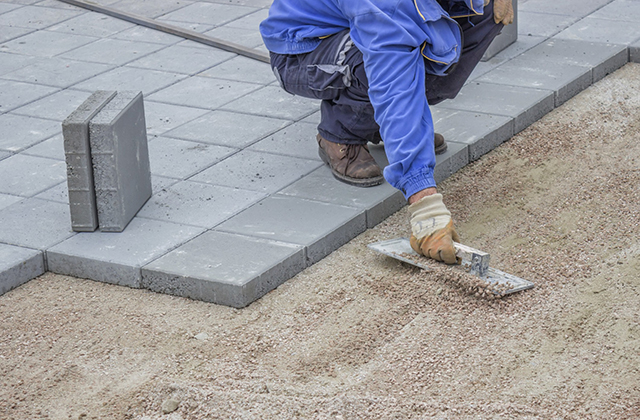Cement Driveway Cost
Let’s get started on your project!
Get free estimates from local Driveway contractors. The cement driveway cost Perth offer immaculate driveways, patios & concrete flooring options.
Curb appeal, the look of a property from the street, is an incredibly important part of determining a home’s value as well as its resale potential. Along with the windows, doors and landscaping, the driveway can add or subtract from the home’s overall curb appeal. While there are several options for driveway materials available, one of the most popular and attractive is concrete. The price, style and even makeup of concrete can vary depending on the pouring process and aggregates within, which means that homeowners can easily find the best style and material to fit their driveway needs.
The cost of a concrete driveway can vary substantially depending on a variety of different factors and choices. The materials alone can cost as little as $1 per square foot for a basic driveway, but the cost to homeowners will be substantially more.
There are also a number of ways that the cost of concrete can be increased from the standard bottom price.
Some of the major advantages of concrete driveways are durability, longevity, minimal maintenance and the variety of finishing and color options. The leading competitor of concrete driveways, asphalt, has a typical lifespan of just 20 years, but concrete driveways can last for more than 40 years when they are installed correctly. This means that homeowners won’t have to deal with replacement for several decades. In addition, concrete is far less likely to soften over time, which asphalt has a tendency to do.
This makes concrete the best driveway option in particularly hot climates. While some driveway materials need to be sealed every few years in order to protect their structural integrity, there is minimal, if any, maintenance required to keep concrete in great condition. Finally, many homeowners opt for concrete driveways because there are several unique finishing options available as well as the potential for colored or stained concrete.
Some of the drawbacks of concrete driveways include the price, the condition in freezing temperatures, the difficulty of repairs and the fact that it cannot be resurfaced. Concrete, even at its most basic, will still tend to be more expensive than asphalt when it comes to installing a new driveway. For those on a budget, this may be a discouraging factor that knocks concrete driveways off the list of options. Another disadvantage is that concrete driveways are not ideal in climates with sub-zero temperatures for extended periods of time.
These cold environments can lead to cracks in the concrete that are unsightly as well as potentially dangerous. Finally, there is little that can be done to fix or refinish concrete driveways. While repairs are possible, they tend to be expensive, and refinishing is generally not considered to be an option at all.
The process of installing a concrete driveway is not as simple as mixing up a few bags of ready-mix concrete and pouring them down. Concrete driveways typically require as many as five sacks of concrete powder for each cubic yard as well as the water necessary to mix it. Professional installation usually involves bringing in a truck full of already-mixed concrete and pouring it into forms. These forms are made from steel rods as well as wood, which ensures that the concrete has structural integrity and won’t crack under the weight of a vehicle.
One of the things that can increase the cost of a concrete driveway as well as give it a more unique look is the way that the concrete itself is poured and into what shapes it is formed. The most basic, affordable concrete driveway will be poured as a solid slab, which is the simplest means of installation. By creating numerous wooden forms, however, the driveway can take on a different shape or a different look. If cracking is a concern, one popular option is to pour large squares rather than a slab.
This prevents cracking and can create a sort of pattern that draws in the eye. Another option is to leaves gaps in between the squares of rectangles of concrete. These narrow gaps can be filled with gravel, river rocks or even grass for a more appealing driveway.
The standard concrete driveway will be in a generic rectangular shape that follows the natural driveway lines of the property, will be a gray color, will be 4 inches thick and will be scored minimally to prevent cracking. This is the kind of driveway that homeowners can expect at the lower-end of the price range. While this style is popular, there are also a variety of ways to upgrade the driveway when it comes to the finish, or the top layer of the concrete. Aggregates, for example, are stones, sand or any other material that gets mixed in with the wet concrete.
This creates a textured surface on the driveway which can be eye-catching as well as colorful. There is also the option to stain the concrete while it is still wet or apply a stain to the surface of the dried concrete after it is poured, both of which allow homeowners to have a driveway in just about any imaginable color. Other finish options include scoring decorative patterns into the concrete, hand-staining portions of the driveway, stenciling designs onto the driveway or creating a border in a different color or style.
Looking for accurate quotes on your project? Get multiple quotes for any home improvement project See pro’s rating, reviews, projects and more 100% free, no obligations Only takes a few minutes Find pros in your area.


